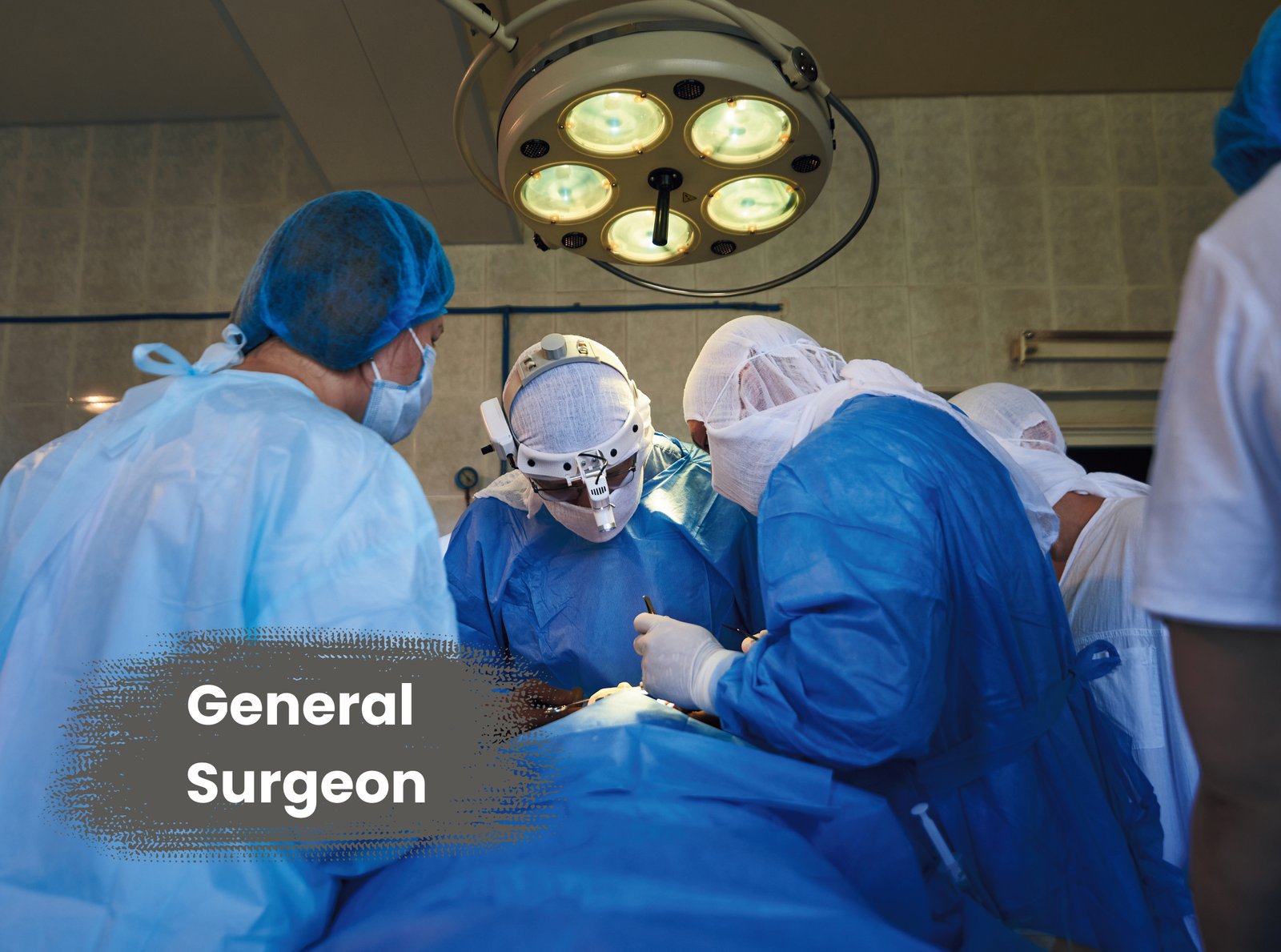General surgeons are medical professionals who are trained to perform a wide range of surgical procedures on various parts of the body. Their expertise encompasses both elective and emergency surgeries. Here are some common aspects of a general surgeon’s treatment:
- Consultation and Diagnosis:
- General surgeons initially assess patients through consultations to understand their medical history and symptoms.
- They may order diagnostic tests such as imaging studies (X-rays, CT scans, MRI) or laboratory tests to accurately diagnose the condition.
- Preoperative Evaluation:
- Before surgery, general surgeons conduct a thorough preoperative evaluation to assess the patient’s overall health, identify potential risks, and ensure that the patient is fit for surgery.
- Surgical Procedures:
- General surgeons perform a wide range of surgeries, including but not limited to appendectomy, cholecystectomy (gallbladder removal), hernia repair, colon resection, and more.
- They may use minimally invasive techniques (laparoscopic or robotic surgery) or traditional open surgery depending on the nature of the procedure and the patient’s condition.
- Postoperative Care:
- After surgery, general surgeons monitor patients closely in the recovery phase.
- They manage postoperative pain, ensure wound healing, and address any complications that may arise.
- Follow-up:
- General surgeons provide postoperative follow-up care to track the patient’s recovery, address any concerns, and adjust treatment plans as necessary.
- Emergency Surgical Procedures:
- General surgeons are often involved in emergency situations, such as trauma, acute abdominal pain, or critical conditions that require immediate surgical intervention.
- Collaboration with Other Specialists:
- General surgeons collaborate with other medical specialists when a patient’s condition requires a multidisciplinary approach. For example, they may work with oncologists for cancer cases or gastroenterologists for digestive system issues.
- Continued Education and Training:
- General surgeons stay updated on the latest advancements in surgical techniques, technology, and medical research through continuous education and training.
It’s important to note that the specific treatment provided by a general surgeon will vary depending on the patient’s condition. Each case is unique, and treatment plans are tailored to meet individual needs. If you have a specific medical condition or concern, it’s advisable to consult with a healthcare professional for personalized advice and treatment.


